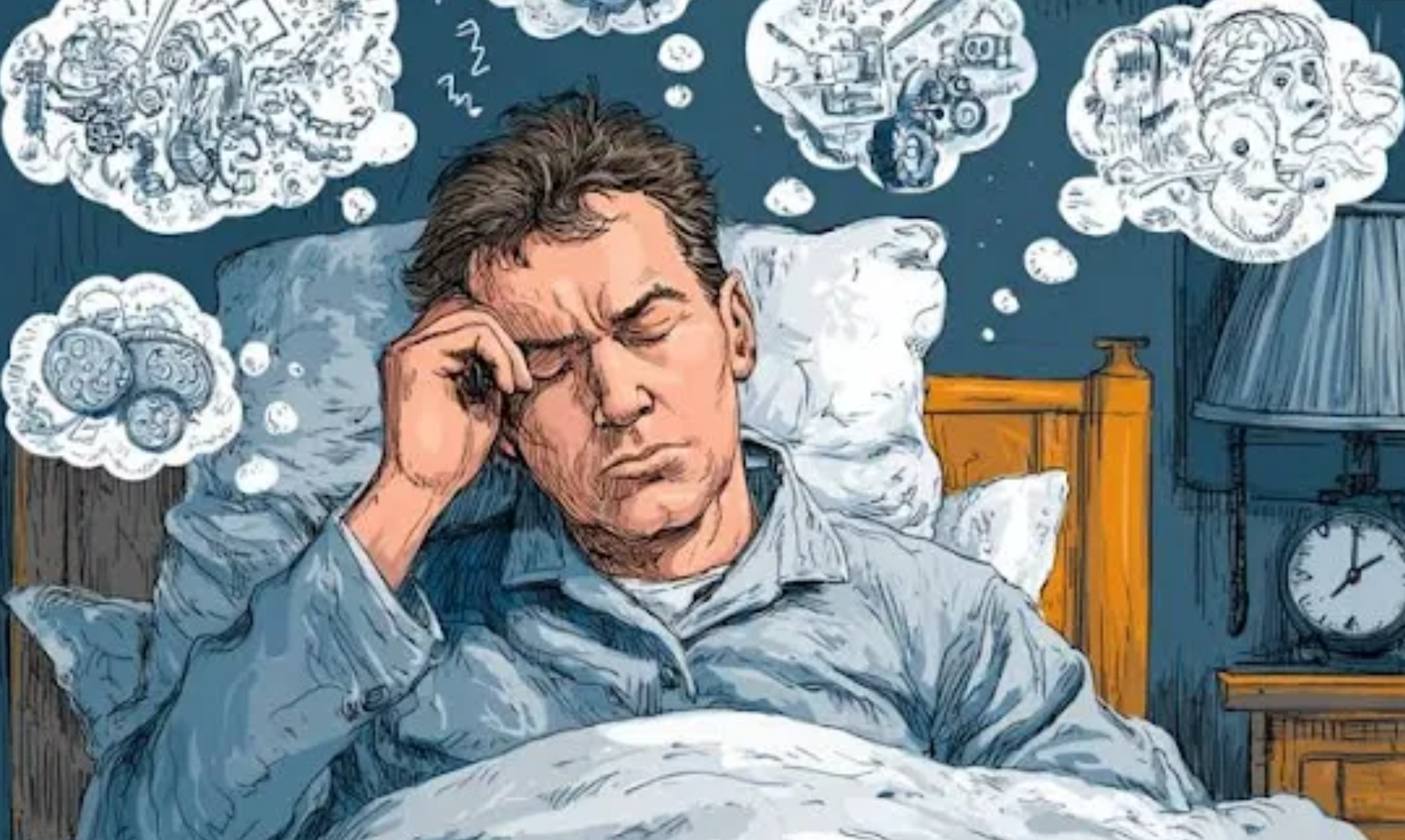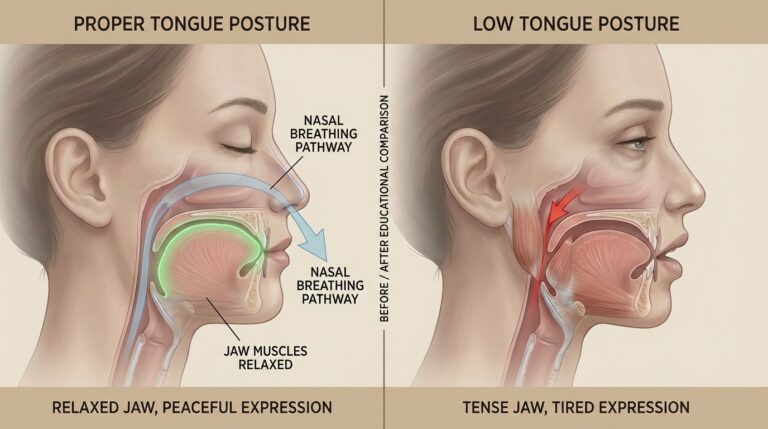Why Your Brain Feels Foggy After Bad Sleep: The Science Behind Mental Fatigue

sleep deprivation makes you feel foggy.
We’ve all been there. After a restless night of tossing and turning, you wake up feeling like you’re moving through molasses. Your coffee doesn’t quite hit the same. You read the same email three times before the words sink in. That mental fog isn’t just in your head—it’s a fascinating biological process your brain initiates when it’s desperate for the rest it didn’t get.
Groundbreaking research from MIT has just pulled back the curtain on what’s actually happening inside your skull during those frustrating moments when you simply can’t focus. The discovery? Your exhausted brain is literally trying to clean itself while you’re still awake, and this housekeeping comes at a steep cognitive cost.
The Brain’s Hidden Cleaning System
Think of your brain as a bustling city that generates waste 24/7. Every thought you have, every memory you form, every movement you make produces metabolic byproducts that need to be cleared away. But unlike the rest of your body, your brain doesn’t have a traditional lymphatic system to haul away this cellular garbage.
Instead, scientists have discovered something extraordinary: a network of waste-clearance pathways called the glymphatic system that relies on cerebrospinal fluid (CSF) to flush out toxins and metabolic waste. This fluid—the same clear liquid that cushions your brain and spinal cord—acts as a sophisticated cleaning solution, sweeping through brain tissue to collect and remove harmful proteins and cellular debris.
Here’s what makes this system remarkable: it becomes dramatically more active during sleep, particularly during deep sleep stages. When you’re sleeping soundly, your brain cells actually shrink slightly, expanding the spaces between them by up to 60%. This expansion allows cerebrospinal fluid to rush through like a power wash, carrying away accumulated waste products including amyloid-beta proteins linked to Alzheimer’s disease.
What Happens When Sleep Goes Missing
Now here’s where things get interesting—and a bit concerning. When MIT researchers studied 26 volunteers using simultaneous brain imaging and electrical monitoring, they discovered something unexpected about sleep-deprived brains.
During moments when attention completely failed—when participants missed visual cues or didn’t respond to sounds—their brains released sudden waves of cerebrospinal fluid, mimicking the cleaning process that normally happens during sleep.
Professor Laura Lewis, who led the study, describes it perfectly: “If you don’t sleep, the CSF waves start to intrude into wakefulness where normally you wouldn’t see them.” Your brain essentially enters a brief “micro-sleep” cleaning mode while you’re still conscious and trying to function.
The research team observed these attention lapses occurring in perfect synchronization with:
- Sudden outward flow of cerebrospinal fluid from the brain
- Slowing of breathing and heart rate
- Constriction of pupils (starting about 12 seconds before the CSF wave)
- Complete failure to notice or respond to stimuli
Think about what this means for a moment. Your sleep-deprived brain is so desperate to complete its necessary cleaning that it forces these maintenance cycles during your waking hours—but every cleaning wave temporarily shuts down your ability to pay attention to the world around you.
Why This Matters More Than You Think
This isn’t just about feeling a bit spacey after a bad night. The implications ripple through every aspect of health and daily life.
For Brain Health: The glymphatic system plays a crucial role in clearing amyloid-beta and other proteins associated with neurodegenerative diseases like Alzheimer’s. When this system doesn’t function properly during sleep, these toxic proteins can accumulate over time. Chronic sleep deprivation essentially means chronic reduction in your brain’s ability to protect itself from neurodegeneration.
For Daily Function: Those attention failures aren’t minor inconveniences. Whether you’re driving, making important decisions at work, or caring for children, momentary lapses in attention can have serious consequences. The research showed that sleep-deprived participants had slower reaction times and sometimes failed to register changes in their environment at all.
For Long-Term Wellness: Lifestyle factors that affect glymphatic clearance—including chronic sleep deprivation, stress, and poor sleep quality—may alter the risk for cognitive decline and Alzheimer’s disease. We’re not just talking about feeling tired; we’re talking about potential long-term changes to brain health.
The Whole-Body Connection
What surprised researchers most was discovering that these brain-cleaning episodes aren’t isolated to neural tissue. They represent a coordinated event involving your entire body.
When your brain initiates one of these compensatory cleaning cycles during wakefulness, your heart rate drops, your breathing slows, your pupils constrict, and your attention completely disengages. According to Dr. Lewis, this suggests “there’s a unified circuit that’s governing both what we think of as very high-level functions of the brain—our attention, our ability to perceive and respond to the world—and then also really basic fundamental physiological processes.”
The prime suspect for this master control system? The noradrenergic system, which regulates both cognitive and bodily functions through the neurotransmitter norepinephrine. This chemical messenger appears to oscillate during normal sleep, and its dysregulation after sleep deprivation may trigger these intrusive cleaning episodes during waking hours.
What You Can Actually Do About It
Understanding the science is fascinating, but what matters is what you can do with this information. Here’s what the research suggests:
Prioritize Sleep Quality, Not Just Quantity: It’s not enough to spend eight hours in bed if that sleep is fragmented or shallow. Deep sleep stages are when glymphatic clearance peaks, so improving sleep quality matters more than you might think. Create a dark, cool sleeping environment, maintain consistent sleep and wake times, and limit screen exposure before bed.
Consider Your Sleep Position: Interestingly, research suggests that glymphatic transport is most efficient when sleeping on your right side. While this might seem like a minor detail, it could influence how effectively your brain clears waste during sleep.
Support Your Glymphatic System Through Lifestyle: Regular exercise, maintaining vascular health, and staying well-hydrated all support optimal cerebrospinal fluid flow and glymphatic function. These aren’t separate health goals—they’re interconnected with your brain’s cleaning capacity.
Recognize When You’re Impaired: After poor sleep, be honest about your cognitive state. Those moments when you “space out” aren’t character flaws or lack of willpower—they’re your brain physically unable to maintain attention because it’s trying to clean itself. Adjust your schedule when possible to avoid high-stakes decisions or dangerous activities.
The Bigger Picture
This research reveals something profound about the non-negotiable nature of sleep. Your brain isn’t just resting when you sleep—it’s performing essential maintenance that cannot be skipped without consequences.
When sleep doesn’t happen, your brain doesn’t simply accept the situation. It fights back, forcing maintenance cycles during waking hours even though this impairs your ability to function. It’s similar to how your computer might suddenly slow down while running background updates—except the “computer” is your brain, and the “slowdown” is your attention completely dropping offline.
The study, published in Nature Neuroscience, used sophisticated simultaneous EEG and fMRI scanning to capture these events in real-time. This technical achievement allows scientists to see the precise coordination between brain activity, fluid movement, and attention failures.
Looking Forward
Understanding the glymphatic system opens new possibilities for protecting brain health. The National Institutes of Health recently confirmed the existence of these waste-clearance pathways in living humans for the first time, validating what was previously only observed in animal studies.
Future treatments might target this system directly—potentially through medications, specific sleep interventions, or other approaches that optimize glymphatic clearance. For now, the prescription is remarkably simple yet challenging to follow in our always-on culture: get good sleep, regularly and consistently.
Your brain is literally washing itself while you sleep, clearing away the metabolic debris of consciousness. Miss that cleaning cycle, and your brain will attempt to catch up during waking hours—but you’ll pay the price in lost focus, slower reactions, and that all-too-familiar mental fog.
The next time you’re tempted to sacrifice sleep for productivity, remember: your brain isn’t asking for rest as a luxury. It’s demanding the time it needs to maintain itself, and one way or another, it will take that time—even if it has to steal moments from your waking hours to do it.
Key Takeaways
- Sleep deprivation triggers brain-cleaning episodes during waking hours, causing complete attention failures
- These cleaning waves involve cerebrospinal fluid flushing the brain, normally a sleep-only process
- The glymphatic system clears toxic proteins linked to Alzheimer’s and other neurodegenerative diseases
- Attention lapses from sleep deprivation are whole-body events, not just brain-based phenomena
- Improving sleep quality and supporting glymphatic function may protect long-term brain health
References and Further Reading:
- MIT News: This is your brain without sleep
- Original Research: Nature Neuroscience Study
- NIH: Brain waste-clearance system shown in people for first time
- Science: Coupled brain activity and cerebrospinal fluid oscillations in human sleep
- Research: Achieving brain clearance and preventing neurodegenerative diseases
see even
7 Best Posture Practices for Sitting at a Desk All Day: Your Complete Guide to Pain-Free Work






